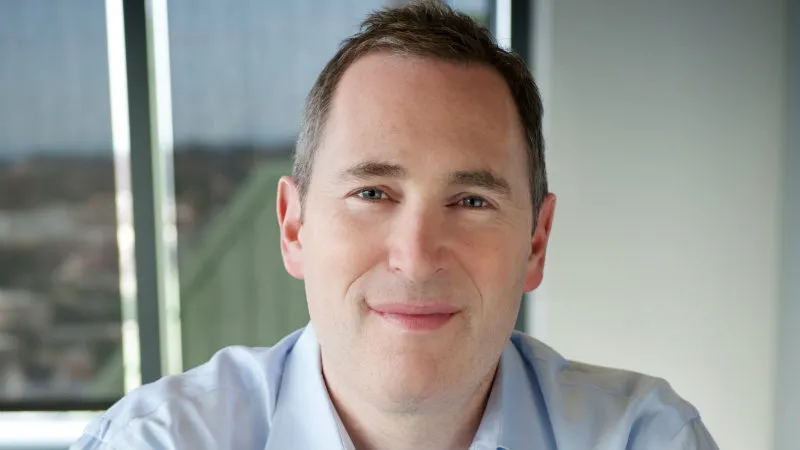AWS CEO Andy Jassy says AI will enhance jobs, not take them away
Amazon Web Services CEO Andy Jassy speaks on creating the cloud business, and how innovations like AI will not take away, but actually create new jobs
Seventeen years ago, Andy Jassy was trying to figure out why Amazon.com’s departments were using needless infrastructure without consuming the bandwidth they had provisioned for in the first place.
His problem statement was how to create an architecture that would scale the business without having to add infrastructure. By 2007, Andy and his team created the cloud business – Amazon Web Services – where organisations did not need to add on infrastructure, and instead could use the network to connect to available infrastructure, and kickstart their applications on a pay-as-you-go basis.
The democratisation of IT began then, and together with the iPhone, it was one of the greatest technology triumphs. Today, AWS is the leading cloud business with a run rate of $18 billion per year.

Excerpts of an interview with Andy Jassy
YS: You made over 20 announcements at re:Invent, and yet you did not speak about Blockchain?
AJ: There is a reason why we did not talk about Blockchain. Amazon wants to build something because it is practical, and not because it is cool. That said, we are closely looking at the distributed ledger technology.
We have several clients who have built Blockchain on top of AWS. But, we think it's not practical at this point of time. I say it's not practical because its use case is yet to be figured on a large scale basis, and the capabilities are limited. We will closely watch this technology before we make any announcements.
YS: Data is all important, and Artificial Intelligence (AI) is making it possible. Your thoughts on its impact on nations and individuals?
AJ: There is a lot of talk that AI will take away jobs. But we believe it will create jobs. There is so much work we do in technology that we are not really able to fill a lot of these new roles that we are creating.
Clearly, there is an opportunity and it is unfair to say AI will take away jobs. I am so glad that these repetitive tasks that we call jobs will go away. Humans can now do things that they are always meant to do, which is to learn and do higher work.
We launched translate and transcribe as tools, which takes away the need to listen to voice recordings and transcribe them. It reduces the effort and makes humans efficient at their job. Even in the US, people think jobs will go away. Look at the mines and mills in the US, automation helped people move away from repetitive tasks. Even manufacturing - these jobs left the US long ago and are not coming back.
The education system must change and prepare children for new roles in the era of AI and ML. I believe in India people must prepare themselves for the new era. Data is the most important thing.
YS: How does not build such a large business?
AJ: We have no reason to list AWS separately because we are already growing so much. You must also understand that we are growing because of corporate business. Startups alone do not make the business large. The key to building a large business is to make data access and computing easy.
Companies want to make sense of large streams of data and they want their data scientists to be able to search data fast. We want businesses to focus on business, and their engineers can focus on applications, they need not focus on all the backend tools because AWS will provide the tools to make it easy for them. Our S3 data lake is the classic service that is helping data scientists build statistical models to crunch volumes of data.
YS: How are companies using the cloud today, are they betting on multiple cloud providers?
AJ: Everyone is saying there will be hybrid clouds and that companies distribute workloads across a couple of cloud companies. While there are companies that make that decision, I can tell you that in the future it's not going to be so.
Today, very few make that decision because they have to standardise so much with these cloud companies and does not serve their business purpose. AWS is more functional in the offerings and it makes it easy for a business to adapt its tools because we have built them after listening to customers.
We don't want to handicap developers. Asking development teams to be fluid on multiple cloud platforms is difficult and we believe there won't be hybrid environments. People have volume discounts to capture business, but that does not make their tools business friendly. You are diminishing your buying leverage with these cloud businesses. Companies pick us because they can scale and deploy faster.
YS: A lot of AI and ML tools were launched today, is this why you are saying companies eventually won't go to multiple cloud providers?
AJ: You need a lot of things for Machine Learning and AI. We are excited about giving tools that give builders the right foundation and we provide it. We have the most reliable and most feature-rich data lake. S3 has been used by so many companies and it makes their data the crown jewels for companies.
Others don't have the entire suite of capabilities, like key access we give to Goldman Sachs or the AI and ML services that we offer for developers because everyone knows data should be crunched fast to keep ahead in the business race.
YS: What do you think about India and its startups and business ecosystem?
AJ: We see large system integrators like Infosys and Wipro pushing ahead with the cloud. This is a great sign of evolution of business and India has impacted us a lot. Indian companies use AWS when they expand out of India. We have started in India very recently and there is so much more to do in India.
The government is enabling innovation and we love how it is paving the way for startups to go global. India is a big region for AWS and there are a number of technical colleges there. The economy is growing. We are really optimistic about how the country will help in technology progress and for AWS.
YS: What about expansion, R&D and data privacy?
AJ: Amazon spends $16 billion on R&D, and a significant portion of that is in AWS. We spend billions of dollars on an average and we are adding enough data centres and new servers globally. We do heavy-lifting of data for customers.
Data privacy is crucial to us and customer sensitivity is paramount to any business. The customers own their data and companies must protect it. That's how we built capabilities with encryption keys. Companies work with us to understand that it belongs to customers and not to us.







